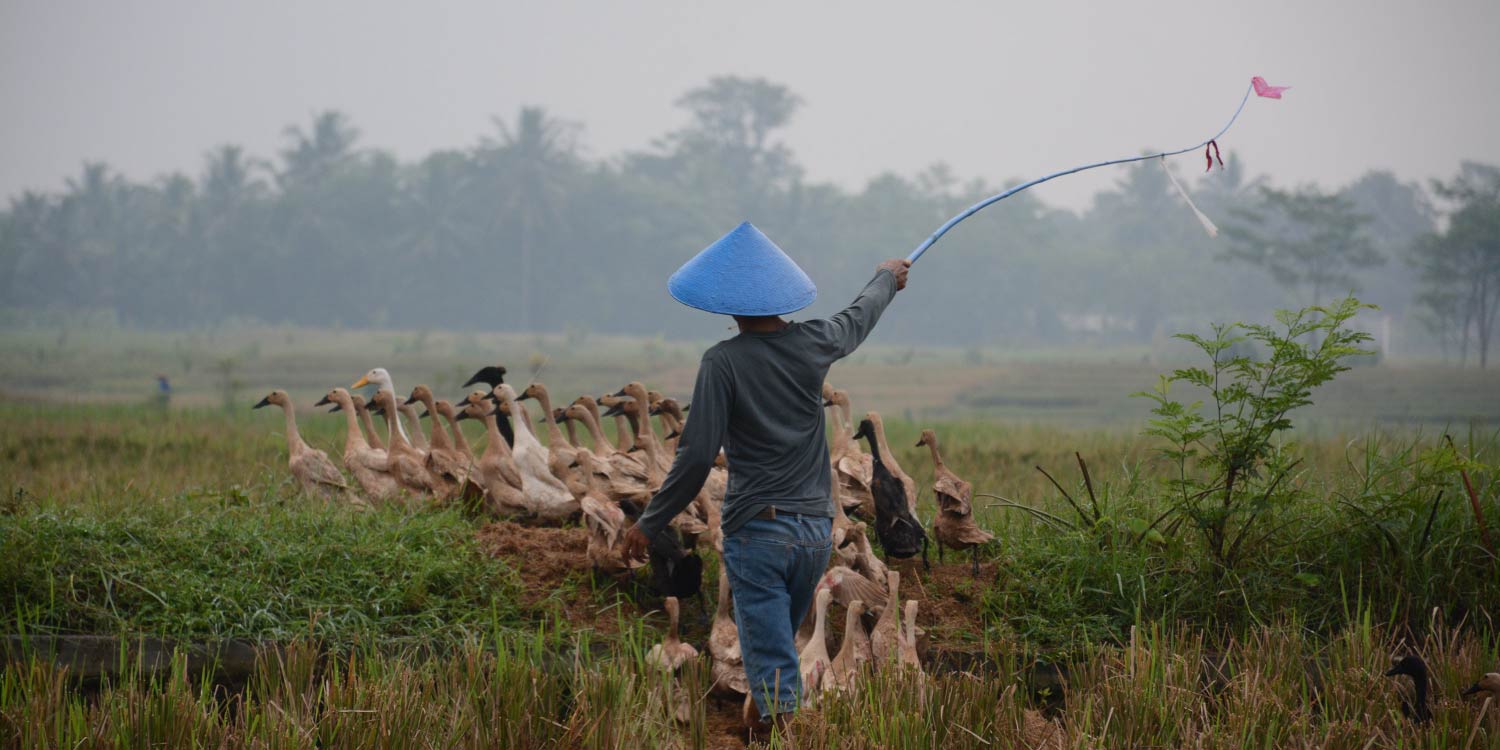
Edition: 27 March to 7 April 2023
ONE HEALTH
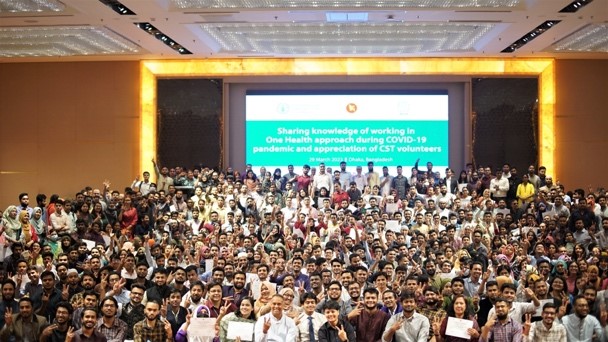 ©FAO/Asif Jilani | BANGLADESH Knowledge sharing and appreciation of volunteers from the COVID-19 project FAO officially closed the USAID-funded project on technical and operational support for the COVID-19 response. The closing ceremony was organized on 29 March 2023 to share knowledge and thank all community support team (CST) volunteers for their efforts and dedication during the COVID-19 pandemic. The project was designed to improve case detection and risk mitigation by leveraging existing implementation and improving the respiratory surveillance system in Bangladesh. Throughout the implementation period from 2020-22, CST performed approximately two million household visits across the north and south parts of Dhaka, screening 234 370 potential virus fighters, 61 861 were identified as verified virus fighters. Meanwhile, FAO collaborated with the Institute of Epidemiology Disease Control And Research (IEDCR) to support test quality assurance. Seventy-one laboratories received onsite mentoring support, and more than 877 laboratory professionals received training and mentoring support from the FAO-supported pool of experts. The assessment, external training and troubleshooting support help improve laboratories' biosafety and quality assurance. |
-monitoring-and-evaluation-operational-tool-(m-e-ot).png?sfvrsn=e6576121_1) ©FAO/YIN MYO AYE | ASIA AND THE PACIFIC REGION Development of Tripartite Zoonoses Guide (TZG) Monitoring and Evaluation Operational Tool (M&E OT) A Technical Advisory Working Group Expert Consultation on TZG M&E OT was organized in a hybrid setting from 4 to 6 April 2023 by FAO at headquarters. Since November 2022, FAO RAP has contributed to developing the M&E framework with a results chain and a library of indicators via regular online meetings. The stepwise methodology for implementation and the structure of the M&E OT were discussed. The tool will be piloted in some countries as a further step thanks the United States Government through the Defense Threat Reduction Agency (DTRA) and USAID for the continuous support.
|
LABORATORY
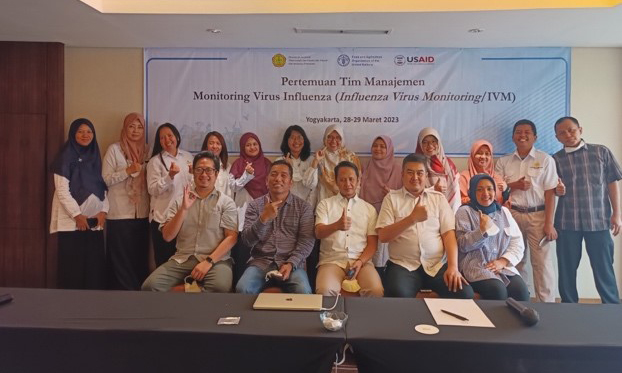 ©FAO/Audi Harsono | INDONESIA Avian influenza outbreak preparedness |
PARTNERSHIP
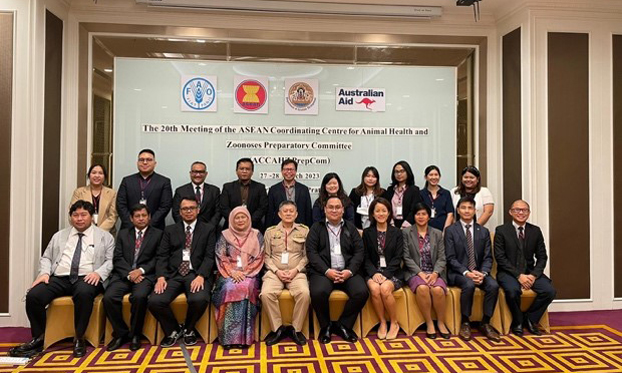 ©FAO/Maharti Rihana | ASIA AND THE PACIFIC REGION The last preparatory committee meeting of ACCAHZ |
.png?sfvrsn=b75e33f4_1) ©FAO/Ahmad Gozali | ASIA AND THE PACIFIC REGION Development of presidential regulation on national animal health system (NAHS) |
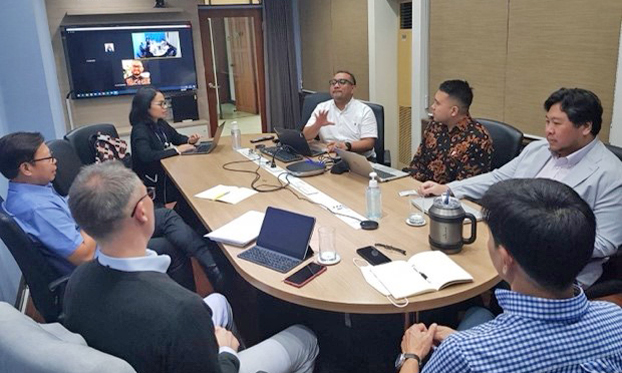 ©FAO/Sarah Van Dyk | ASIA AND THE PACIFIC REGION Update meeting with DFAT and ASEAN |
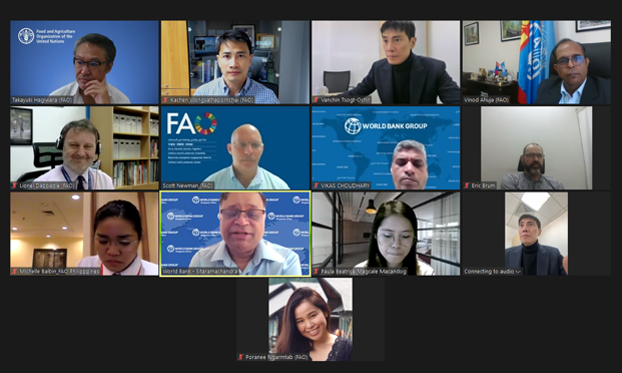 ©FAO/Kachen Wongsathapornchai | ASIA AND THE PACIFIC REGION, THE PHILIPPINES AND MONGOLIA Pandemic Fund proposal development |
ANTIMICROBIAL RESISTANCE (AMR)
.png?sfvrsn=23f871e3_1) ©fao/Domingo Caro (III) | ASIA AND THE PACIFIC REGION FAO concludes collaboration with Chulalongkorn University (CU) |
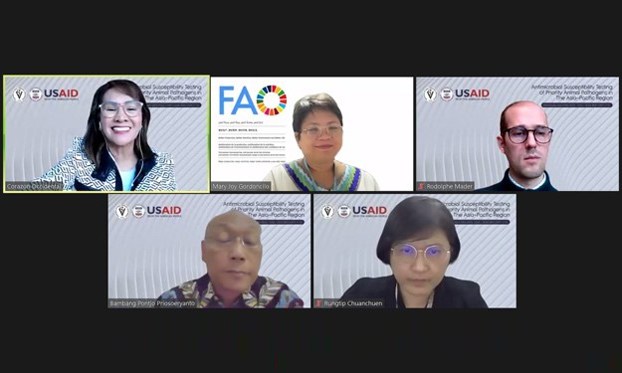 ©fava | ASIA AND THE PACIFIC REGION Webinar on antimicrobial susceptibility testing |
AFRICAN SWINE FEVER (ASF)
 ©FAO/Yooni Oh | ASIA AND THE PACIFIC REGION Quarterly review of ASF activities held |
RISK REDUCTION
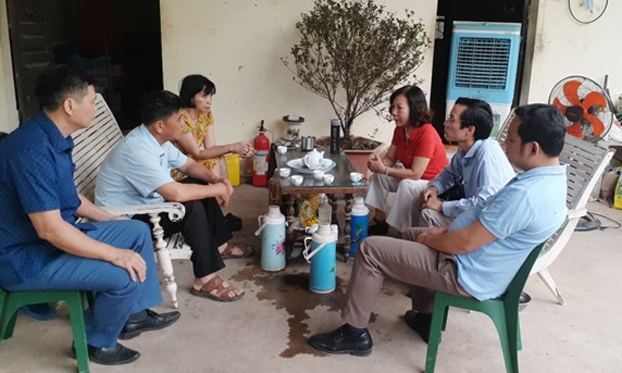 ©FAO/Pawin Padungtod | VIET NAM Development of model action plans for biosecurity model pig farms in Viet Nam |
